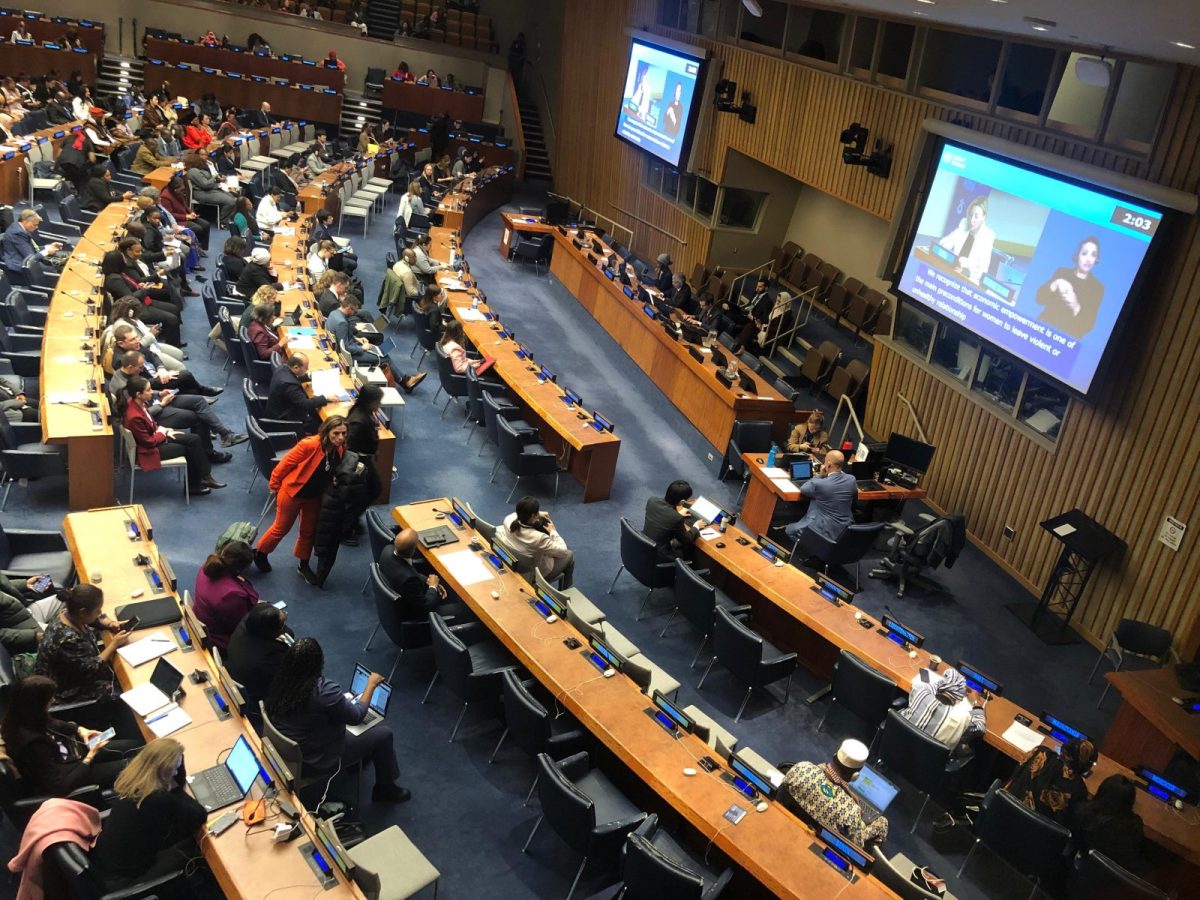The 69th Commission on the Status of Women opened with the adoption of a political declaration where countries reaffirmed their commitment to accelerate action to achieve gender equality and the empowerment of all women and girls. This year, the gathering aimed to review the Implementation of the Beijing Declaration and Platform for Action.
Opening the CSW at the United Nations headquarters, Secretary-General António Guterres, reflected on the thirty years since countries convened in Beijing to adopt the Declaration and Platform for Action. He said three decades on, the promise made on the framework feels more distant than we might ever have imagined.
‘’Of course, we always knew that would never happen overnight, or even over years, but today women’s rights are under siege. Now is the time for those of us who care about equality for women and girls to stand up and to speak out, now is the time for the world to accelerate progress and deliver on the promise of Beijing’’ said Guterres.
‘’In the past thirty years, the world has moved forward in boosting girls’ education, cutting maternal mortality, increasing legal protections, and more, but immense gaps persist. Violence, discrimination, and economic inequality are still rife, the gender pay gap still stands at twenty percent and globally, almost one in three women have been subject to violence. In many countries, women and girls are still denied the most basic of rights’’ he added.
Throughout the two weeks, the commission hosted various dialogues on various topics ranging from environmental justice, gender-based violence to inclusive development among others, against the backdrop of the theme of reviewing the Beijing framework.

Sonke co-hosted side events as follows:
Men and boys as agents of change to feminism and tackling barriers to solidarity
This session, which was co-organised with MenEngage Alliance, Governments of Rwanda and Sweden, RWAMREC, Equimundo and other organisations, was to explore lessons of the work with men and boys and on transforming masculinities, for the last two decades, and it’s impacts at practice, programs and policy levels towards the realisation of the Beijing Declaration and Platform for Action and gender, social and environmental justice more broadly. The event in which Policy Development and Advocacy Manager Mpiwa Mangwiro-Tsanga was a panellist, also laid out practical actions to foster a culture of positive masculinities and men’s engagement as feminist allies in advancing gender equality, ensuring that work is transformative and prioritizes structural and systemic change.

Transforming care: progress, challenges and future directions in men’s involvement in care work.
Sonke collaborated with Equimundo, RWAMREC and Mencare among other partners, to discuss the progress, challenges, and opportunities in reshaping care policies and practices to promote gender equality, with an emphasis on the role of men in caregiving.
Sonke’s Co-Executive Director Bafana Khumalo presented on the Transforming care work: African regional perspective on caregiving, discrimination and success in shifting caregiving norms. He noted that caregiving discrimination and successes in shifting caregiving norms vary across African regions.
‘’ We see that East Africa has made significant progress through policy reforms and community-based programs, West Africa on the other hand has opportunities to promote men’s involvement in care work through initiatives targeting patriarchal norms and power dynamics, while Southern Africa has made progress, but further efforts are needed to address socio-economic factors perpetuating caregiving discrimination’’ he said. The meeting also called on policymakers, practitioners, and communities to advocate for policy reforms and advancements supporting men’s involvement in care work.

Beijing 30+: Gains, losses, what next?
In partneship with MenEngage Africa, UN Women , Frontline AIDS, Y+ Global and Rutgers, we brought together veteran gender justice advocates and today’s young leaders to reflect on the progress made since the 1995 Beijing Conference, to examine emerging challenges and chart a way forward for gender equality in Africa and beyond.
‘’The intergenerational dialogue drew parallels between preceding and current generations’ struggles to foster solidarity and encourage cross-generational collaboration’’ said Thembelihle Ntandane, Senior Trainer and a moderator for the session. ‘’ We also reflected on the new forms of gender-based discrimination and GBV that have emerged over the past 30 years and in terms of current anti-right and anti-climate justice movements, such as digital harassment, climate-related challenges, and how conflict has affected the gains, while emphasizing intergenerational exchange between veteran advocates and today’s young leaders’’ she adds.

Experts say to achieve women’s rights and gender equality there’s a need to dismantle the unequal patriarchal power structures that are at the root of gender inequality.
As we move forward, the UN Secretary-General António Guterres’s key recommendation on how to accelerate progress in the next coming years include:
- Boosting sustainable finance for sustainable development – to deliver sustainable funding for women’s equality.
- Investments in economic empowerment including adequate pay and pensions for care givers – the majority of whom are women.
- Investments to eradicate all forms of violence and harassment – the United Nations’ Spotlight Initiative can be refenced to indicate the impact
- Step-up support for women’s organizations, as they play a vital role in accountability
- Action on technology, to address and eliminate all forms of violence using digital technologies…
- Women leading in business: temporary special measures, such as quotas, targeted appointments, and parity goals must help and countries and companies should use them.
The two weeks forum underscored the global commitment to advancing gender equality and addressing the multifaceted challenges women and girls face worldwide. Its 70th edition is expected to take place under a new theme in March next year.


